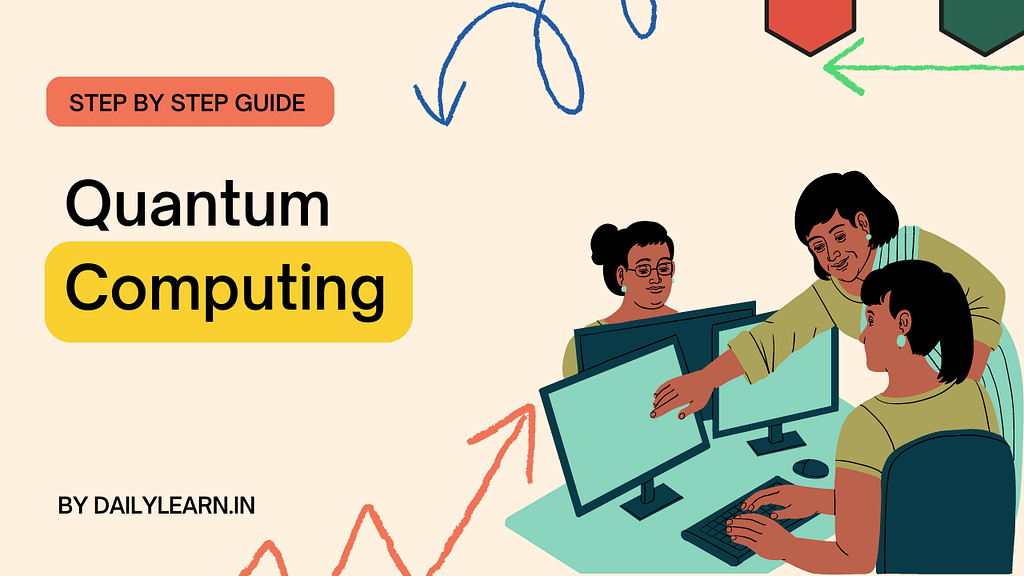Table of Contents
Introduction
Quantum Computing is at the forefront of technological innovation, promising to revolutionize how we process information and solve complex problems. Unlike classical computers, which rely on bits as the smallest unit of data (0s and 1s), quantum computers use quantum bits, or qubits, which can exist in multiple states simultaneously. This unique property allows quantum computers to perform calculations at speeds unimaginable with current technology.
This article explores the fundamentals of quantum computing, highlights highly searched topics, and answers frequently asked questions, while ensuring the content is SEO-friendly with relevant keywords.
What is Quantum Computing?
It is a branch of computing that harnesses the principles of quantum mechanics to process information. It utilizes the phenomena of superposition and entanglement to perform computations that would be infeasible for classical computers.
Key Principles of Quantum Computing
1. Qubits
Qubits are the basic units of quantum information. Unlike classical bits, which can be either 0 or 1, qubits can represent both states simultaneously due to superposition. This allows quantum computers to process vast amounts of data at once.
2. Superposition
Superposition is the ability of qubits to be in multiple states at the same time. This property enables quantum computers to explore many possible solutions simultaneously, dramatically increasing their computational power.
3. Entanglement
Entanglement is a phenomenon where qubits become interconnected, such that the state of one qubit can depend on the state of another, regardless of the distance between them. This enables quantum computers to perform complex calculations more efficiently.
Applications of Quantum Computing
1. Cryptography
It has the potential to break classical encryption methods, leading to the development of quantum cryptography for secure communication. Quantum key distribution (QKD) allows for the creation of unbreakable encryption keys.
2. Drug Discovery
In pharmaceutical research, quantum computing can simulate molecular interactions at an unprecedented scale, speeding up the process of drug discovery and reducing development costs.
3. Optimization Problems
It can tackle complex optimization problems in fields such as logistics, finance, and manufacturing, providing solutions that are far more efficient than classical methods.
4. Machine Learning
It can enhance machine learning algorithms by enabling faster processing of large datasets, improving the training of models and their predictive capabilities.
You can also learn about “Differences between AR and VR”?
Skills Required for a Career in Quantum Computing
A career in quantum computing requires a unique blend of skills, including:
Quantum Mechanics: Understanding the principles of quantum mechanics is fundamental to grasping how quantum computing works.
Programming Languages: Proficiency in programming languages such as Python, C++, and Q# (a language designed specifically for quantum programming) is essential.
Mathematics: Strong skills in linear algebra, probability, and complex numbers are crucial for developing and understanding quantum algorithms.
Computer Science: Knowledge of algorithms, data structures, and computational complexity is important for implementing quantum solutions.
Problem-Solving: Creative thinking and problem-solving skills are vital for tackling complex challenges in quantum computing.
Technical Information on Quantum Computing
Quantum Algorithms
Several algorithms have been developed to harness the power of quantum computing, including:
Shor’s Algorithm: An algorithm for factoring large integers exponentially faster than the best-known classical algorithms, with implications for cryptography.
Grover’s Algorithm: An algorithm that provides a quadratic speedup for unstructured search problems, making it faster than classical search algorithms.
Quantum Hardware
Quantum computers rely on specialized hardware to manipulate qubits. Various technologies are being explored, including:
Superconducting Qubits: Utilizes superconducting materials to create qubits that can operate at extremely low temperatures.
Trapped Ions: Uses ionized atoms trapped in electromagnetic fields as qubits, manipulated with laser pulses.
Photonic Qubits: Employs light particles (photons) as qubits, allowing for high-speed information transmission.
FAQs.
1. What is quantum computing?
Quantum computing is a type of computation that utilizes the principles of quantum mechanics to process information, enabling faster and more efficient calculations than classical computers.
2. How do qubits differ from classical bits?
While classical bits can only be in one of two states (0 or 1), qubits can exist in multiple states simultaneously due to superposition, allowing quantum computers to perform many calculations at once.
3. What are the main applications of quantum computing?
Key applications include cryptography, drug discovery, optimization problems, and advancements in machine learning.
4. What skills are needed for a career in quantum computing?
Important skills include knowledge of quantum mechanics, programming languages (like Python and Q#), mathematics, computer science, and strong problem-solving abilities.
5. What are some challenges in quantum computing?
Challenges include qubit stability (coherence), error correction, scaling up quantum systems, and developing algorithms that can effectively leverage quantum computing capabilities.

👍🏽